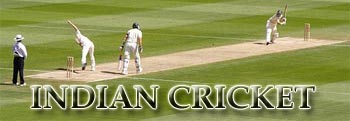Darren Scott Lehmann Darren Scott Lehmann born 5 February 1970 in Gawler, South Australia is an ex- Australian cricketer, who made his ODI debut in 1996 and Test debut in 1998. He was on the environs of national selection for the entirety of the 1990s, and only became a regular in the ODI team in 2001 and Test team in late 2002, before being plunged in early 2005. Mainly an insistent left-handed batsman, Lehmann was also a part-time left arm orthodox bowler, and was famous for his disregard for physical fitness and contemporary dietetic regimes. He proclaimed his retirement from first-class cricket in November 2007. Freshly he was appointed as the coach of Deccan Chargers, an IPL team. He trained Queensland during the 2010/11 KFC Twenty20 Big Bash in place of Trevor Barsby, who had resigned. Lehmann's batting method was quite unconventional; taking guard outside leg stump, and, immediately before a ball was bowled, stepping back and across toward and occasionally past off stump. This abnormal technique meant that if the ball was short in pitch, he did not need to step back any more. Lehmann was noted for his play in opposition to spin, and was a useful left-arm orthodox spinner himself, as proved by his match figures of 6/92 against Sri Lanka in Colombo in 2004. He was relatively perfect, but had little ability to turn the ball and used a flat curve. He was also a logical fielder, but his lack of fitness meant that his nimbleness was poor. Lehmann had only partial opportunities at the international level. His body shape, comparative lack of fitness and physical condition, while never dulling his run-scoring capabilities, intended he was never a favorite of the Australian hierarchy, and especially never saw eye-to-eye with former coach Bob Simpson in the early-mid 1990s. Lehmann made his Test debut in the Third Test in opposition to India in March 1998 in Bangalore, after Steve Waugh bared a hamstring injury. Lehmann scored 52 on debut, as well as asserting Indian captain Mohammad Azharuddin while bowling. Selectors were overwhelmed with his performance, and when Waugh returned from injury on the visit of Pakistan later on that year, Ricky Ponting was in its place dropped. Lehmann scored 98 in the First Test in Rawalpindi, but an injury strained him out of the Second Test in Peshawar in which Taylor scored an Australian record 334 not out on a level pitch in a high-scoring drawn match. Lehmann failed to execute in the final Test in Karachi and, regardless of scoring his maiden ODI century; he was dropped for the first two Tests of the 1998/99 Ashes series.  Another libel shot selection in the subsequent ODI series, attempting to quash sweep Shahid Afridi first ball, resulted in his dismissal from the ODI team, with Katich once more promoted. Lehmann was powerless to reclaim a spot as Australia headed in the direction of the 2005 Ashes series looking for batsmen to contest an England team fielding four pace bowlers, counting three at the high speed of 90 mph (140 km/h), and he was never again on the Cricket Australia's contracted players list. In November 2007, he publicized his retirement, uttering that "Physically and mentally I've had enough". |
Home >
Games >
Cricket >
Darren Lehmann
Common Games Of India || History Of Games& Sport || Pre School Games || School Games || Games For Girls & Women || Team Games



